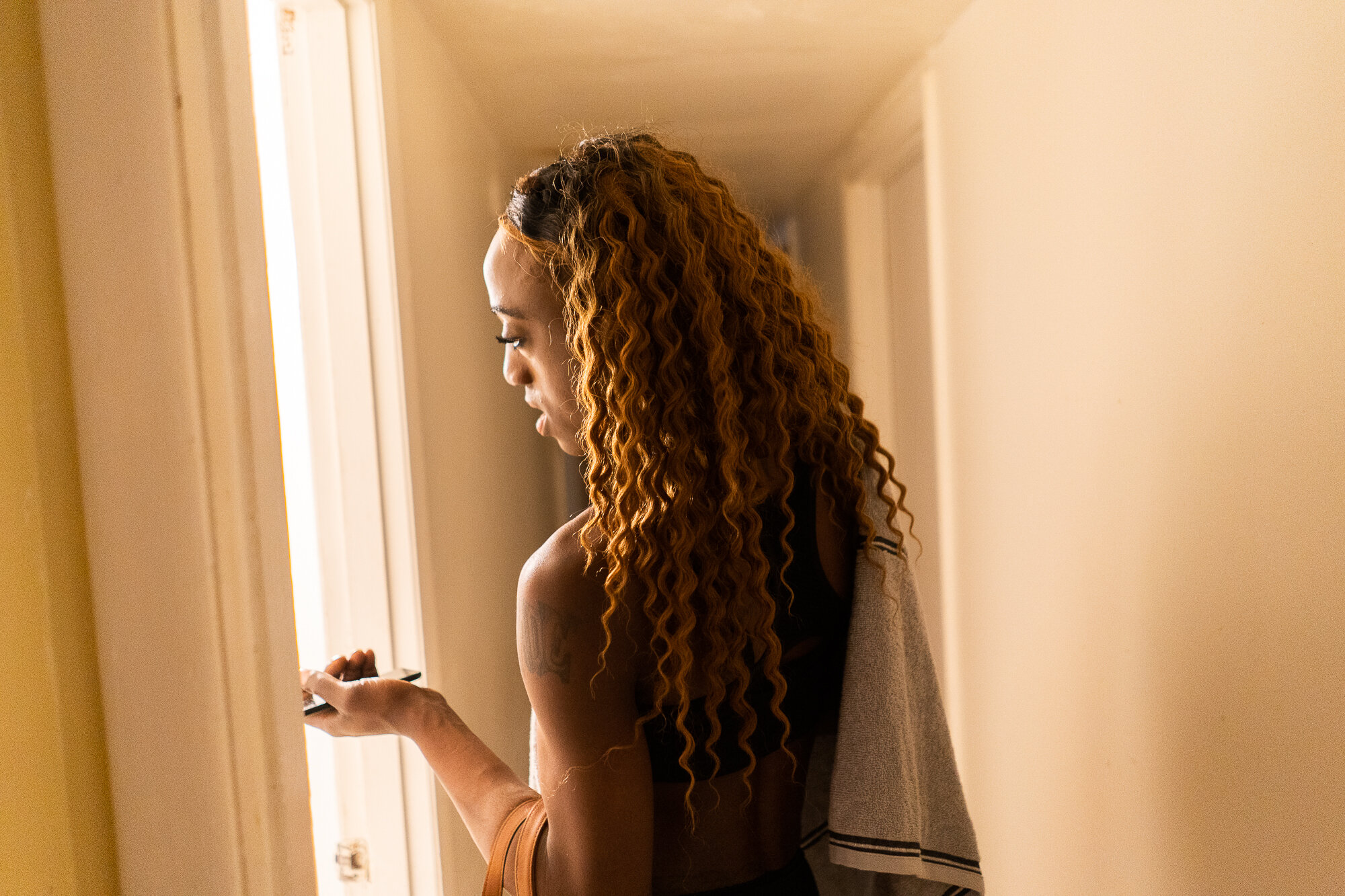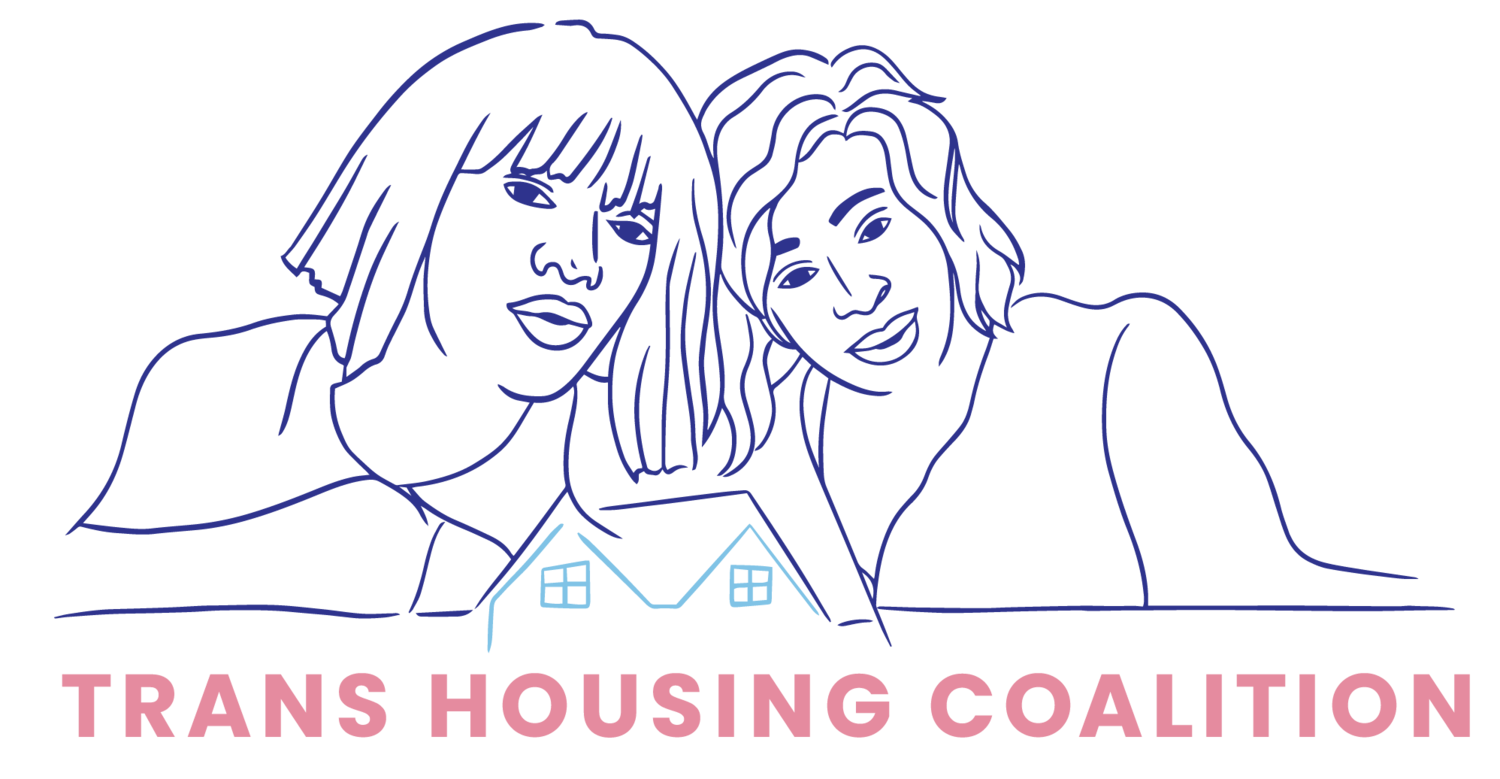
Our Story: How the Homeless Black Trans Women Fund transitioned into the Trans Housing Coalition
The Trans Housing Coalition (THC) arose from a GoFundMe started by Jesse Pratt López in mid-December 2019 to help a small group of Black Trans women she had met through ReVon Michaels López, pictured below.
ReVon and Jesse’s Story
“Like Mother Like Daughter” (ReVon and I Posing on the Stroll), 2019
ReVon is a Sagittarius with a huge smile and laugh, and an even bigger appetite. I met her when she was strutting down the sidewalk in front of a Publix in downtown Atlanta. She was wrapped in a large blanket; her wig haphazardly placed upon her head and her curls as big as her smile. She asked if I could spare some change. I was about to tell her no, I don’t carry cash and I’m broke. But when I took a closer look, I realized at that moment that I was seeing my sister. My Trans sister. One of the Gurlz. A T-Slur as the same men who chase after us like to call us.
She also didn’t know I was Trans, and when we started talking she told me she thought I was the “real fish,” a term trans women use to refer to cisgender women. I instantly felt a connection with her. I told her she looked beautiful and that I would be right back with some cash and a sandwich. When I returned she was so happy to see me. I asked her if I could take her picture with my phone, because I did not want to forget her.
I would come back every couple of days to visit ReVon, or she would come to my house. We hung out, shared food, and she introduced me to the other girls who live and do sex work on the “Hoe Stroll” off of Piedmont Avenue, Atlanta, Georgia.
I started photographing the girls when I would see them. They would pose for me. I would document the mundane, ugly, beautiful. I soon had an entire series of photos of these women. On getting to know them, I realized that society had abandoned and discarded these girls. But their strength was not in their struggles, but in their resilience. It was in their ability to survive through street sex work, addiction, homelessness, HIV, and still be able to strut down the street like they owned the world.
While creating this body of work, I walked the stroll with them, not only in order to walk in their shoes, but also because as a Trans woman myself who has experienced temporary homelessness, I realized that I had never met another Trans woman who hasn’t dealt with housing insecurity and who didn’t have to do sex work to survive at some point. I also realized this: while much of the world pretends we don’t exist, we are here, we have always been here, and we’re not going anywhere.
Once we became close, ReVon and the girls would share stories about the violence they experienced on the streets of Atlanta: getting raped, robbed, shot, and almost killed. Survival sex work has historically been the only profession that many Trans women have been able to succeed in. Many girls, especially when they don’t pass for society’s ideal archetype of what a woman should be, are denied jobs, housing, and other opportunities.
Now, ReVon calls me her Gay mom. I call her daughter. And sometimes the roles are reversed. In the Trans community, we are each other’s elders because many of us don’t have anyone to support us. Since we met, I have become really close with ReVon and the other girls— and the circle of my chosen family has become a little bit bigger.
Through my photography and presence in the Atlanta queer and trans arts and organizing community, I saw a chance to get the girls the support and resources they needed. After initially raising $10,000 in late 2019 through this fund, I was able to secure them temporary housing through the winter holidays and help them get necessities such as food, cell phones, clothes, and spending money.
Graphic: ReVon & Brooklyn, by Monica Moon (IG: @the_moon_omg)
By April 2020, we had run out of funds, even as the girls faced more needs than ever in the midst of the COVID-19 pandemic.
As uprisings ignited across the country to protest the murders and the injustices levied on Black lives, several people caught hold of the campaign on social media and it went viral. I soon saw the funds could be used as leverage to do something big: sustainable, permanent changes for the chronically homeless Black & Brown Trans community in Atlanta.
To that end, I reached out to local Trans-led organizations such as Solutions Not Punishment Collaborative, Southern Fried Queer Pride, and the Trans Atlanta Housing Program, as well as service providers such as Someone Cares Atlanta, to gather ideas for this transformed project.
I also began talking with the girls about their hopes for the future: what they needed to build a stable foundation and what is possible moving forward.
With guidance and assistance from these organizations, the Trans Housing Coalition was born. It is driven by the Housing First model, based on the idea that “nothing in any person’s history or present precludes them from being able to be housed.” The project benefits greatly from the wise and kind input of Dr. Sam Tsemberis, who founded Pathways to Housing in New York in 1992 and developed the Housing First model. The approach has put 80 percent of chronically homeless people into long-term housing, based on ongoing research and dozens of projects in different cities. Sam is helping us build the project and train case workers.
Our goal is and always will be to establish long-term housing in Atlanta for Trans people, particularly Black Trans women, who are experiencing chronic homelessness, and to ensure they have the wraparound services necessary to thrive.



